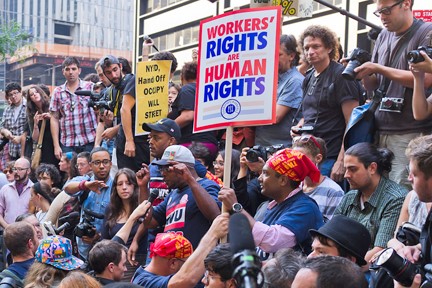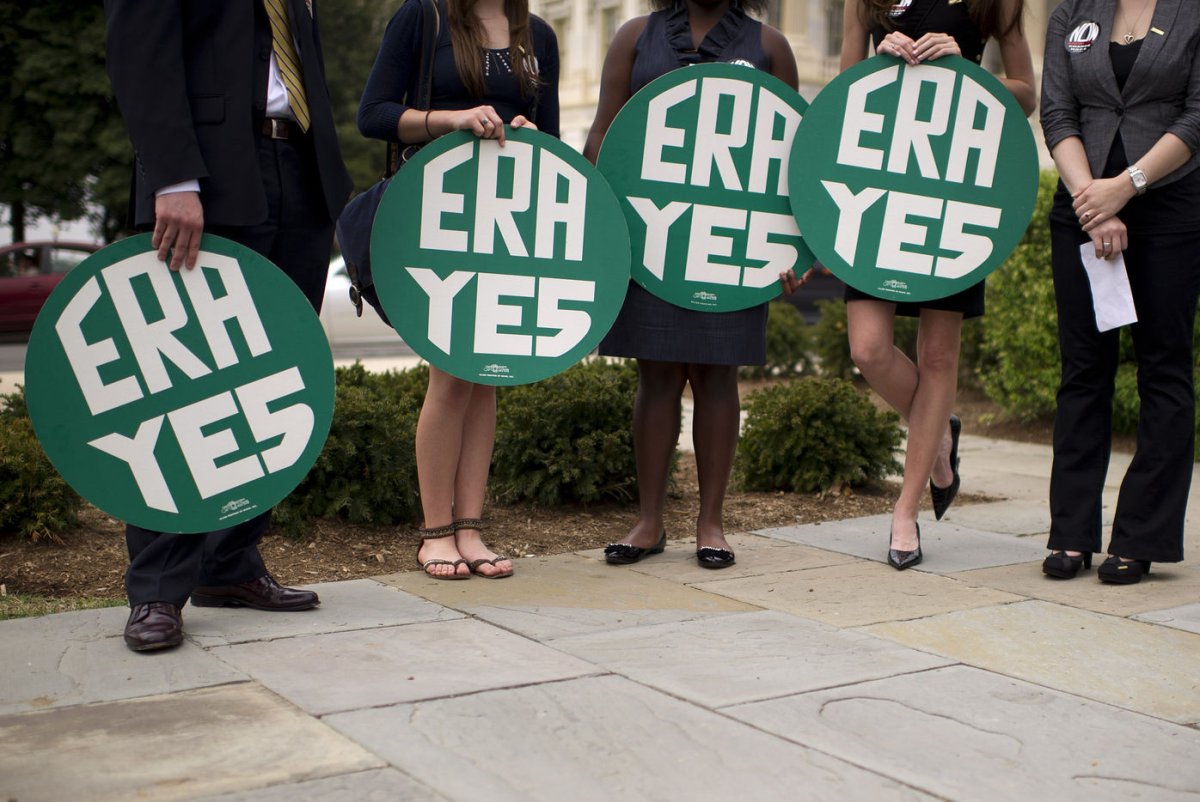On April 8, 1952, President Harry S. Truman seized control of America’s steel mills as an attempt to prevent a shutdown by strikers; however, on April 29, the seizure was ruled unconstitutional by a federal judge. This prompted workers to begin a strike which lasted 53 days. These strikes won them a 16 cent an hour wage increase and other benefits. This is just one famous example of the thousands of cases in which the collective action of the working class has led to a higher quality of life for those involved.
The right to unionize in the United States of America has only existed since the 1930’s and still fails to completely protect the worker as there remain many loopholes and intimidation tactics which an employer may legally use to obstruct the union’s effort.
Still, the impact of unions upon American life was great even before they were federally protected. From the 1881 Atlanta Washerwomen strike to The Great Postal Strike of 1970, Union victories have increased the pay of workers and enhanced the status of the worker in society for centuries.
Even so, anti-union rhetoric is now common even among members of the working class. It makes sense why the capitalist class, those who profit from the worker’s labor, would oppose unionization as their empowerment means less profit for their employers, but for the working class to argue against their own interests can only be the effect of mass deception and manipulation.
The reason we see this antithetical sentiment is due to the years of propaganda dispensed by companies to sway public opinion. A 2019 Economic Policy Institute report estimates companies spend $340 million annually on anti-union consultants alone.
In April of last year, Amazon spent approximately $14 million on anti-union campaigns, in addition to holding dozens of anti-union meetings and threatening to withhold wages if the union was formed. The latter event being ruled unlawful by a federal judge.
Some of the common reasons working-class individuals cite as causing them to be anti-union are dues, loss of income during strike, and lack of direct communication with supervisors.
These arguments stem from anti-union propaganda. Union dues, like those paid to a sporting league or church, fund the organization’s work. While you are paying them a portion of money, on average the money gained in salary raises and benefits completely offsets the due cost. Unionized workers earn an average of $191 a week more than non-unionized workers.
In addition to the value of the higher wage, unionized workers are more likely to have benefits like employer provided insurance and pensions.
According to a March 2023 report from the Bureau of Labor Statistics, 96% of unionized employees have employer provided health insurance compared to just 69% of non-union employees. Additionally, the average premium for the employer provided insurance is $487.42 for union employees and $655.39 for non-union employees.
Unions also use these dues to maintain strike funds. While striking is a last resort effort and used by most unions only when all negotiations have failed, in the event that a strike is carried out these funds will be dipped into and distributed to help replace the workers’ lost income.
Unions being democratic organizations, many will elect members who are trained in dealing with upper management if their help is needed. Workers are not compelled to go through these officials and are free to take an issue to their supervisors directly, they merely are an option available to the workers.
In the past, the suppression of unions through propaganda and company action was even worse. The Pinkertons, a private security agency, were contracted to violently put down strikes. During the 1892 Homestead Strikes, a force of 300 Pinkertons besieged a striking steel mill. The event only ended after they shot at the striking workers killing 16 and injuring 23 more.
Companies would not spend millions of dollars annually or, as in the past, violently dispense with their laborers if the workers stood to lose from unionization. The loss of the worker is the gain of the company; less money spent on wages and benefits for the worker is more profit for the employer. It is clear in not only the effort that companies go through to prevent unionization, but also in the data and facts mentioned above that unions universally benefit the working class.
Modern protections upon the life and leisure of the working class like the eight-hour workday, the five-day work week, child labor regulations, minimum wage, social security and unemployment benefit are all due to the work of national unions in fighting for the working class.
Before the 1938 Fair Labor Standards Act 50-hour, and even 60-hour, work weeks with no overtime pay weren’t uncommon in American history. Anyone who enjoys their time off from work has the efforts of labor unions to thank.
The great positive impact that the work of labor unions has had on American society cannot go unnoticed. These efforts did not stop in the 20th century either; the service unions carry out for society continues today.
Californian unions won three guaranteed sick days for the entire state in 2014, nurses at Kaiser Permanente won 21% raises in October of 2023, and in the same year United Auto Workers and Teamsters negotiated historic contracts which won the abolition of tiered wages and lucrative new contracts with UPS respectively.
With a resurgence in union victories and the highest public approval of unions since the 1960s being attained in the last few years, the work of unions continues to be fundamental to our society.
For higher wages, better benefits, and a better future for all it is imperative that we all support the rights of unions, look into unionizing our workplaces, and support ongoing unionization efforts. In unionizing, the workers of America have a world to gain and nothing to lose but their chains.












